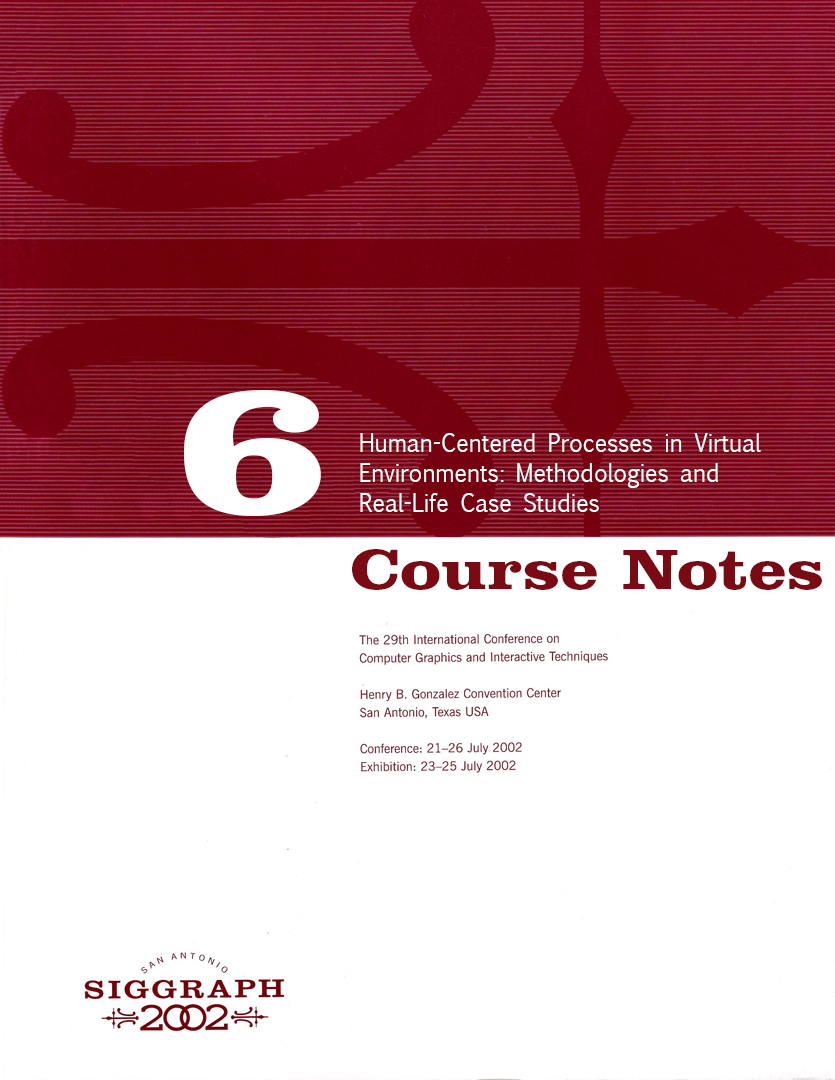“Human-Centered Processes in Virtual Environments: Methodologies and Real-Life Case Studies” by Stone and Clark
Conference:
Type(s):
Entry Number: 06
Title:
- Human-Centered Processes in Virtual Environments: Methodologies and Real-Life Case Studies
Course Organizer(s):
Presenter(s)/Author(s):
Abstract:
Prerequisites
No prior experience in the field of human factors or ergonomics. Those with some experience of introducing VR into real-world applications, or those considering or assessing VR technologies for their own organizations, will acquire useful knowledge in this course.
Topics
Virtual reality, virtual environments, interactive 3D. The pitfalls of “technology push.” Human factors issues (“remember the user”). Human-centered design standards (NASA and international sources). Virtual reality and human factors methodologies and “best practices.” US and UK evidence in support of human-centered design. US and UK case studies (surgery, aerospace, defense, automotive, engineering, ceramics, education). The need for future research and development (human-performance metrics, spatial and temporal situation awareness, collective training, transfer of training).
Description
Using recent case-study material from Virtual Presence Limited and the National Aeronautics and Space Administration (including space and defense studies, surgery, automobile design, and ceramics), this richly illustrated course demonstrates application of human-centered methodologies in delivering usable, affordable, and extensible interactive 3D or VR solutions for prototyping and training applications.




